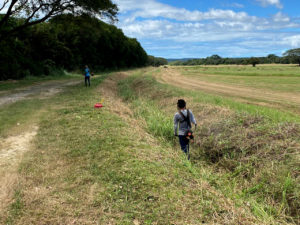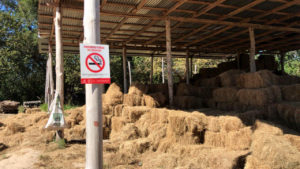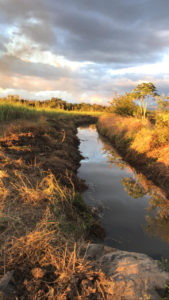La Flor Campus: Partnerships for sustainability
During the past year, EARTH University’s La Flor Campus has been brimming with new projects that study and advance agricultural sustainability. To achieve this, EARTH established alliances with companies based in Guanacaste, Costa Rica, that deal in the production of sugarcane, hay, and livestock. Each company has committed to honoring EARTH’s mission by following responsible agricultural practices that lessen negative environmental impacts.
Sugarcane
La Flor hosts two sugarcane plots, each under distinct management practices: one is overseen by the local sugar company CATSA, and the other is used to study the reduction in crop loss due to fire, whether caused by nature or man.
Through green harvesting – an emissions-free alternative to the common practice of controlled burning – EARTH was able to show producers how to harvest sugarcane in a less destructive manner. In addition, this project generated ethical employment opportunities during the harvest period and contributed to the reactivation of the local economy amid COVID-19.
Hay
A family business manages hay production on campus. Like EARTH, this small company has been recognized by Programa Bandera Azul Ecológica, a national promoter of environmental best practices, for following sustainable methods.
“EARTH derives many academic benefits from La Flor because it is a space for students to learn about irrigation methods, production in the dry tropics, farming crops such as rice, sweet potato, garlic, pitahaya, and plantain, as well as growing hay and pasture grasses,” says Mauricio Segura, Director of Academic Administration at EARTH. “It is a win-win process. The producer has the space to grow a diversity of crops and the academy obtains data about the methods used.”
Livestock
Agronomist Óscar Fernández and his company have implemented regenerative livestock practices on 500 hectares of the campus – shepherding a herd of free-range cattle that will soon be certified free of brucellosis, a common infectious bacterial disease that causes fever in humans. This project will also model proper management of water, soil, and pasture resources for animal producers.
Through these three projects, irrigation canals have been restored, local companies and neighbors have been supported, and academic research has remained active. We will continue leading investigations into practices that safeguard the environment and care for the community.







